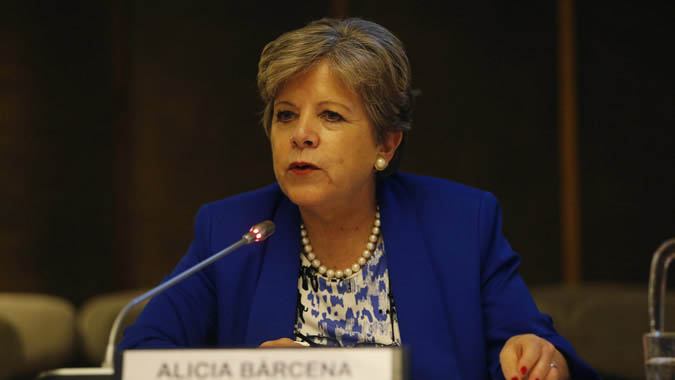The gains from what is expected to be a measure of economic growth for Latin America and the Caribbean this year will not be sufficient to compensate for the crippling effects of the economic crisis inflicted on countries of the region by the COVID-19 pandemic, a new report from the Economic Commission for Latin America & the Caribbean (ECLAC) is warning.
Titled “Recovery Paradox in Latin America and the Caribbean”, the report notes that while the average regional growth estimate for this year is likely to be in the vicinity of 5.2 per cent, a circumstance that “reflects a rebound from the deep contraction of six per cent” last year, it “will not manage to ensure sustained growth” on account of what it says has been “the social impacts of the crisis and the structural problems in the region [which] have deepened and will continue to do so during the recovery.”
ECLAC Executive Secretary Alicia Bárcena says that it is desirable that countries in the hemisphere retain the emergency transfer policies that had been put in place to respond to the pandemic since these will help to bolster and sustain the recovery process. What is needed in the region at this time, Bárcena says, are “policies for a transformative recovery with an emphasis on investment; industrial policies and technologies to drive growth in sectors that are more technology intensive and that generate quality jobs.” The ECLAC top official is also advocating that governments in the region “restructure health and education systems; sustain the transfers; universalize basic emergency income; implement bonds to fight hunger; ensure access to a basic digital basket; strengthen support for MSMEs; push cross-cutting and sectorial policies to move towards a new model of development.”
Asserting that the structural problems that retarded pre-pandemic growth in the region have now become more acute, Bárcena says that “there is nothing to indicate that the low growth dynamic prior to 2020 is going to change,” a circumstance which, she says, “will have negative repercussions on the economic and labour market recovery” the increase in growth this year and in 2022 notwithstanding.
Equally worrying for the region is the report’s projection that in terms of per capita income, Latin America and the Caribbean “continues on a path towards a lost decade” in an environment where the current growth rate is unsustainable. Further the report alludes to the risk of the region returning to “mediocre trajectories, with insufficient investment and employment, and major environmental deterioration, in circumstances where “the crisis brought on by the pandemic has increased inequality and poverty, mainly affecting women, schoolchildren and older people. Furthermore, it came at a moment when the regional economy was stagnating, unable to tackle the long-term investment crisis, employment and sustainable productive diversification.”
Meanwhile, the report asserts that over the past year the rate of “extreme poverty” in the region climbed to 12.5% with poverty reaching 33.7%. It further indicates that emergency transfers to the most vulnerable sectors served to offset the rise in poverty in the region in 2020, which moved from 189 million the previous year to 209 million people, when it could have been 230 million; and in the case of extreme poverty, from 70 million people in 2019 to 78 million, when it could have been 98 million.
And while the Report asserts that the outlook for foreign trade appears more favourable given an anticipated increase in regional exports by 22% this year following a 10% decline in 2020 this will not be sufficient to significantly alter the likely fortunes of the region in the immediate term.
With regard to financing, the ECLAC report notes that with Latin America being the region with the greatest external debt burden on GDP as well as the highest external debt service in terms of exportations of goods and services, these circumstances have served to reduce fiscal space and put recovery and future growth at risk. The situation, it says, is even more precarious for Small Island Developing States (SIDS) given the fact that in some instances their debt burden exceeds 100%.






